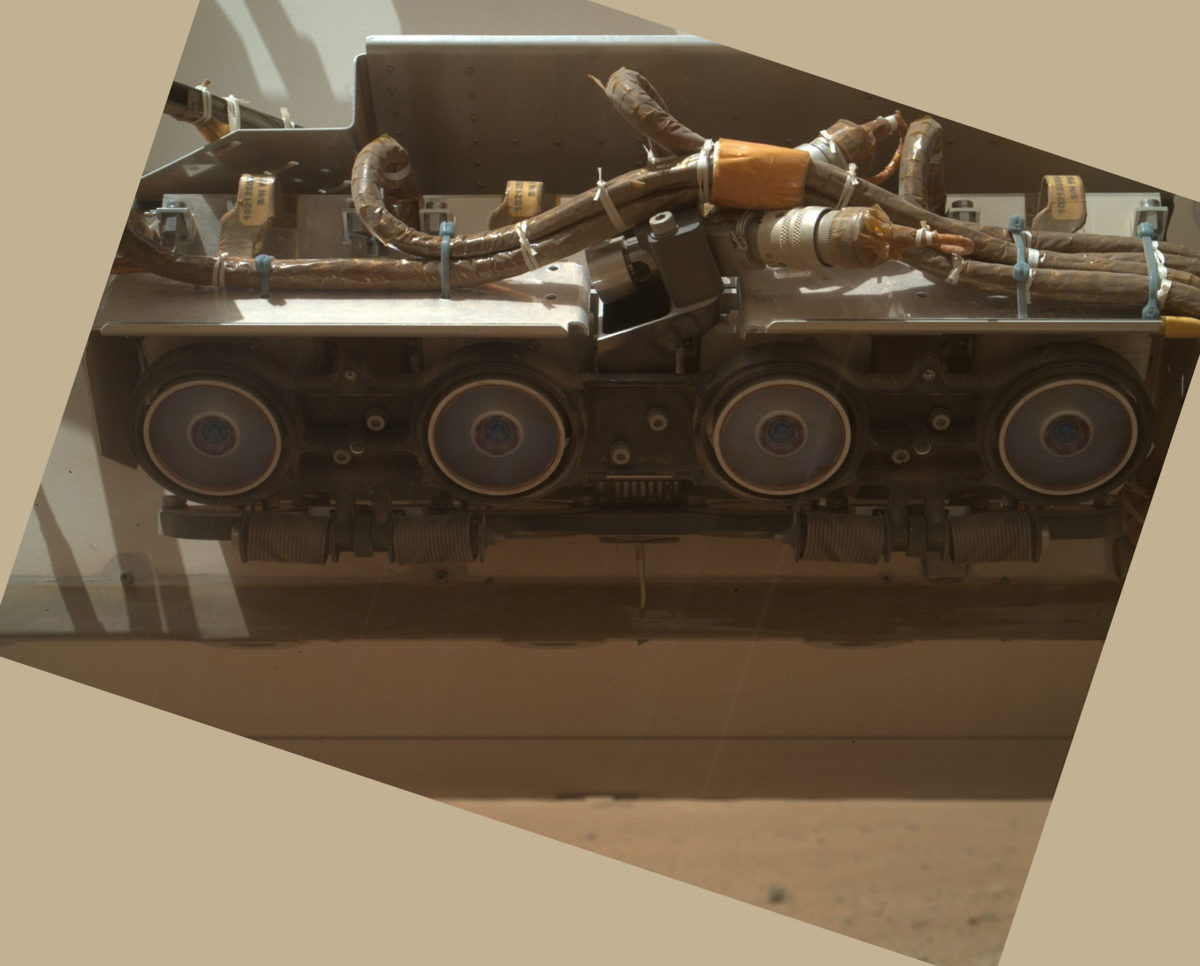Emily Lakdawalla • Mar 04, 2013
Very brief Curiosity update, sol 205: Memory anomaly and a swap to the "B-side"
Hopefully many of you have been following Curiosity's mission to Mars through the rapid release of its raw images. But there haven't been any new images since sol 200 because the mission has been working its way through its first major (not life-threatening, just really inconvenient) anomaly: a memory problem in its main computer. I will let other outlets attempt to explain what's known about the bad news, like National Geographic and CBS News. JPL just announced that they brought the rover out of safe mode on its backup set of electronics, and that they've resumed communication using the high-gain antenna, but that they still need a few days to perform housekeeping operations before they can resume science activity.
Since landing, Curiosity has been employing its "A-side" set of electronics. It has a fully redundant set of electronics, the "B-side," with some connections between the two that would, in theory, permit its controllers to use some parts of A with some parts of B, but for the most part the preferred way of doing things is to have one side running the show and the other side available as a backup. With this swap to the B-side, then, Curiosity's B-side electronics will be considered the main system and the A-side the backup. They'll continue to work on fixing the memory problem on the A-side while they rely on the B-side for operations.
One of the things that'll make the switch a little bit interesting is that it's not just the brains that are redundant; the B-side computers are connected to a second set of engineering cameras that haven't been used yet, as far as I know. Curiosity's new point of view out its B cameras will produce a very slight shift in the perspective of Navcam panoramas (the B cameras are just below the A cameras but have the same horizontal position with respect to the mast). There will be a much larger shift in the perspective of Hazcam views.


The lack of new images from Curiosity's side of Mars has given me time to explore the goodies among the mission's first release of archival data to the Planetary Data System. I'll have more on that later this week, but feel free to explore it for yourselves! Or just explore this cool interactive 3D panorama of the landing site, produced by Andrew Bodrov.
The Time is Now.
As a Planetary Defender, you’re part of our mission to decrease the risk of Earth being hit by an asteroid or comet.
Donate Today

 Explore Worlds
Explore Worlds Find Life
Find Life Defend Earth
Defend Earth

